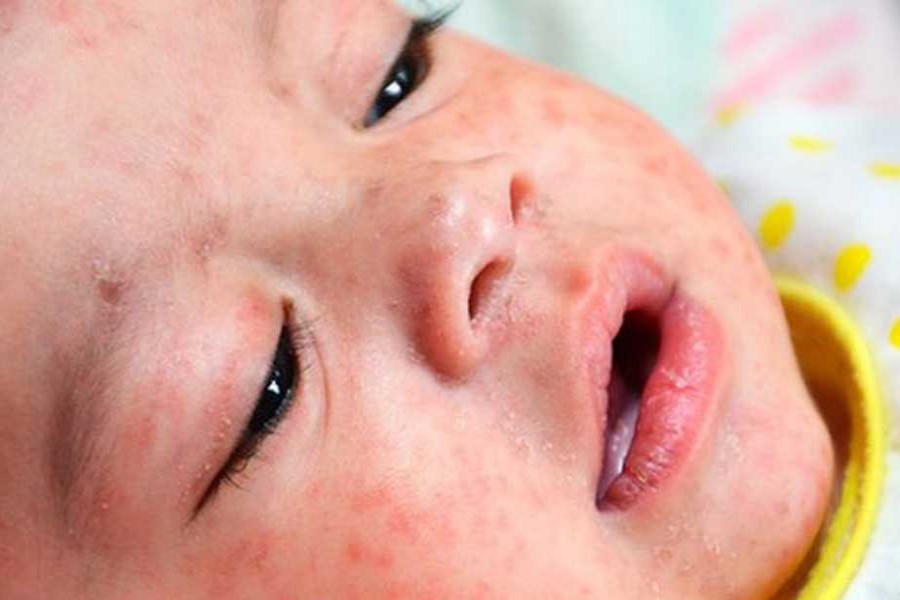There has been a worldwide resurgence of measles, with many countries experiencing "severe and protracted" outbreaks last year, a report warns.
The World Health Organization data shows a rise in cases in almost every region of the world, with 30% more cases in 2017 than 2016.
Experts say complacency, collapsing health systems and a rise in fake news about the vaccine are behind the rise.
They say the measles vaccines can save millions of lives.
Measles is a highly contagious disease that in severe cases can lead to complications such as blindness, pneumonia and infection and swelling of the brain.
The report, put together by the World Health Organization and the Centers for Disease Control and Prevention, looked at measles cases over the past 17 years.
Experts say this is the first year there has been a sustained increase in cases, with 110,000 measles-related deaths.
And they are concerned that trends for 2018 are similar after cases reached a high in Europe in the summer.
The Americas, Europe and the Eastern Mediterranean region saw the greatest upsurge in cases. The Western Pacific region was the only area to see a decline.
A large number of infections were seen in Venezuela, as health systems collapsed after political and economic crises. The country had previously eliminated the disease.
And there are now concerns that as more people move between countries in the region, the disease could continue to spread.
Meanwhile the Ukraine, Italy, France, Germany and Greece all saw an increase in cases in the past few years.
In the UK, which was declared free of the disease by the WHO last year, there have also been small outbreaks in 2018.
This led England's top doctor to urge parents to get their children vaccinated and ignore anti-vaccine myths.
Dr Martin Friede, of the WHO, told the BBC that it was worrying that in a number of European countries parents were not vaccinating their children.
He said: "Probably in Europe, more than other regions, we are seeing vaccine hesitancy becoming more of a problem than elsewhere.
"In some groups, this is driven by religious beliefs but in quite a few populations it is spread by false concerns about the safety of vaccines."
Dr Friede said that social media was playing a part in this and that new ways must be found to counter misinformation.
He said: "Industrialised countries must not be complacent and forget that the disease can come back like a storm.
"It doesn't take many unvaccinated children for that to happen and when it happens, measles is not just a rash - it can cause blindness and brain problems."
The report estimates that since 2000, the two doses of measles vaccines given to young children have saved more than 21 million lives.
But Dr Soumya Swaminathan, of the WHO, said: "Without urgent efforts to increase vaccination coverage and identify populations with unacceptable levels of under- or unimmunized children, we risk losing decades of progress in protecting children and communities against this devastating but entirely preventable disease."


